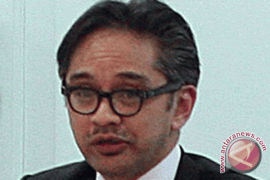Based on information collected by Antara here on Tuesday, permanent lawyer at Indonesian Embassy in Saudi Arabia could not have access in the judicial process of Ruyati binti Satuby, who was beheaded in Saudi Arabia on Saturday.
Besides, legal process in the country has its own characteristic namely the special rights and public rights.
Ruyati`s legal process was related to the violation of special rights, in which clemency process for the violator of special rights should be obtained from the victim`s family/heir.
The government of Indonesia continues to make every effort to protect its migrant workers abroad, including to ensure the rights of the workers who face a threat of death penalty.
But Saudi Arabia carried out the death penalty on Ruyati binti Satubi, an Indonesian female migrant worker (TKI) on Saturday, June 18, 2011.
Ruyati was found guilty of murdering Khairiya binti Hamid Mijid, her employer`s wife, by hitting her in the head with a meat chopper and stabbing her in the neck.
Soon after the news about the beheading of Ruyati in Saudi Arabia reached Indonesia, strong reactions from various parties flared up.
Indonesian Foreign Affairs Ministry spokesman Michael Tene said the execution was done without observing international practices related to consular protection.
He said the ministry was aware of the case and Ruyati had confessed to the murder but was not informed of the timing of the execution.
Expressing his condolences over the death of Ruyati, President Susilo Bambang Yudhoyono expressed hope that the family and relatives of the victim would be given the strength to live without her.
The president also hoped that the government would show much stronger reaction toward the Saudi Arabian government and try its very best to stop more beheadings of Indonesian workers in the future.(*)
Editor: Aditia Maruli Radja
Copyright © ANTARA 2011








